Delve into Cosmic Mysteries: Indian Scientists Decode Planetary Atmospheres. Unveil secrets beyond Earth's realm
In the bustling world of astrophysics, a quiet revolution is brewing. Indian scientists,
armed with sophisticated telescopes and an insatiable curiosity, are delving deep into the mysteries of planetary atmospheres.
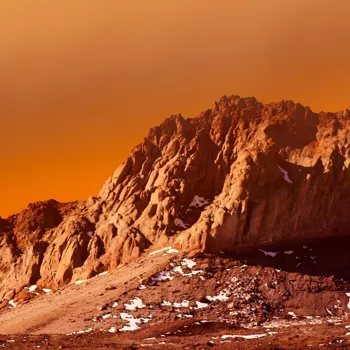
These gaseous envelopes surrounding planets are not merely pretty sights; they are treasure troves of information, holding clues to a planet's past, present, and even its potential for harbouring life.
From the scorching clouds of Venus to the icy realms of Neptune, each atmosphere whispers a unique story, waiting to be deciphered.
ISRO scientist explains importance of planetary atmospheres in space exploration
Dr. Aarti Sharma, a leading planetary scientist at the Indian Space Research Organisation (ISRO), explains, "A planet's atmosphere is like its fingerprint. It tells us about the planet's composition, temperature, weather patterns, and how it interacts with sunlight and the solar wind.
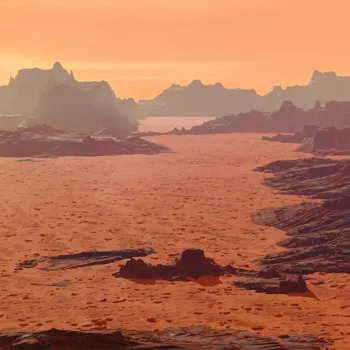
By studying these characteristics, we can gain insights into the planet's formation, its evolution, and whether it could potentially support life as we know it.
" ISRO's ongoing missions, like Chandrayaan-3 and the upcoming Shukrayaan-1 (Venus orbiter), are crucial in gathering data on planetary atmospheres. These missions are equipped with advanced instruments designed to analyse the chemical composition and temperature profiles of these distant worlds.
Study of planetary atmospheres: interdisciplinary research using spectroscopy and computer models to understand climate
The study of planetary atmospheres is a multidisciplinary field, drawing upon principles of physics, chemistry, and geology. Scientists use a variety of techniques, including spectroscopy, which involves analysing the light emitted or absorbed by a planet's atmosphere.
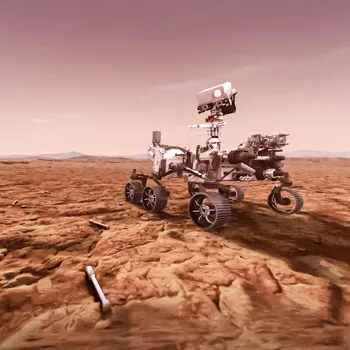
The patterns of light reveal the presence of different elements and molecules, providing a detailed chemical inventory. They also use computer models to simulate atmospheric processes, such as cloud formation and wind patterns.
These models help them to understand the complex interactions that shape a planet's climate. Indian researchers are at the forefront of developing innovative modelling techniques tailored to the unique challenges posed by different planetary environments.
Exciting search for biosignatures on exoplanets by Indian scientists
One of the most exciting areas of research is the search for biosignatures in exoplanet atmospheres. Exoplanets are planets that orbit stars other than our Sun.
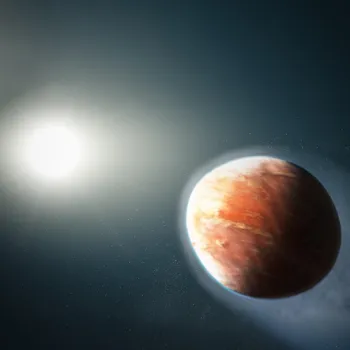
The discovery of exoplanets has revolutionised our understanding of planetary systems, revealing a vast diversity of worlds beyond our solar system. Biosignatures are indicators of life, such as the presence of certain gases in an atmosphere that could only be produced by biological activity.
For example, the presence of oxygen and methane together in an exoplanet atmosphere could be a sign of life, as these gases would normally react with each other unless constantly replenished by a biological source.
Indian scientists are actively involved in developing strategies and technology to detect these elusive biosignatures.
Astrophysicist emphasizes ground-based telescopes in planetary studies
Dr. Rajesh Kumar, an astrophysicist at the Aryabhatta Research Institute of Observational Sciences (ARIES), Nainital, highlights the importance of ground-based observations. "While space-based missions provide invaluable data, ground-based telescopes also play a crucial role.
ARIES operates some of the largest telescopes in India, allowing us to conduct long-term monitoring of planetary atmospheres and study phenomena such as atmospheric storms and cloud variations.
" Indian telescopes are also being used to study the atmospheres of planets in our own solar system, complementing the data obtained by space missions.
This collaborative approach, combining space-based and ground-based observations, is essential for a comprehensive understanding of planetary atmospheres.
Studying planetary atmospheres reveals insights on climate change and Earth's future
The knowledge gained from studying planetary atmospheres has far-reaching implications. It not only helps us to understand the formation and evolution of planets but also provides insights into the processes that have shaped Earth's own atmosphere.
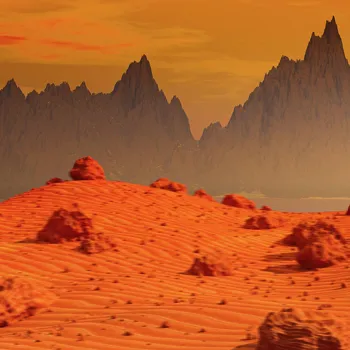
By comparing Earth's atmosphere to those of other planets, we can better understand the factors that contribute to climate change and the potential for habitability. This knowledge is crucial for addressing the challenges facing our planet and ensuring a sustainable future for humanity.
Furthermore, the search for life beyond Earth is one of the most profound questions facing humanity. The study of planetary atmospheres is a key step in answering this question, potentially revealing that we are not alone in the universe.
Indian scientists collaborate globally to study planetary atmospheres, pushing boundaries of knowledge
Indian scientists are actively involved in numerous international collaborations, working with researchers from around the world to unravel the mysteries of planetary atmospheres. These collaborations foster the exchange of knowledge and expertise, accelerating the pace of discovery.

ISRO's partnerships with space agencies like NASA and the European Space Agency (ESA) have been particularly fruitful, enabling joint missions and data analysis efforts.
The Indian scientific community is committed to contributing to the global effort to understand the universe and our place within it. The study of planetary atmospheres is a testament to human curiosity and our relentless pursuit of knowledge.
It is a field that holds immense promise, with the potential to reveal groundbreaking discoveries about the nature of planets and the possibility of life beyond Earth.
As Indian scientists continue to push the boundaries of our understanding, we can expect even more exciting revelations in the years to come, bringing us closer to answering some of the most fundamental questions about our universe.
Studying planetary atmospheres aids space missions and benefits Earth
The implications of this research extend beyond pure scientific curiosity. Understanding the composition and dynamics of planetary atmospheres can help us predict potential hazards to spacecraft, such as atmospheric drag and radiation exposure.

This is particularly important for future human missions to Mars and other destinations. The development of new technologies for studying planetary atmospheres also has spin-off benefits for other fields, such as environmental monitoring and weather forecasting on Earth.
For example, techniques used to analyse atmospheric gases on Mars can also be used to detect pollutants in Earth's atmosphere.
Exploring planetary atmospheres with ISRO's ambitious Venus mission
As we continue to explore the cosmos, the study of planetary atmospheres will undoubtedly play an increasingly important role. It is a field that requires innovation, collaboration, and a spirit of exploration.
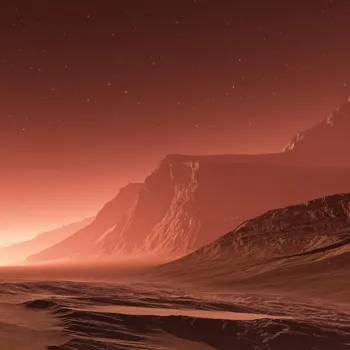
With its growing expertise and ambitious space program, India is well-positioned to make significant contributions to this exciting area of research.
The quest to understand planetary atmospheres is a journey into the unknown, a quest that promises to reveal profound insights about our place in the universe and the potential for life beyond Earth. And ISRO is playing a key role in discovering such secrets.
Now that Chandrayaan 3's rover Pragyan has completed its working on the moon it's time to get ready for our ambitious Venus mission Shukrayaan-1.
Indian scientists overcoming challenges in studying planetary atmospheres
The challenges in studying planetary atmospheres are immense. The sheer distances involved, the faintness of the light signals, and the complex physical and chemical processes that govern atmospheric behaviour all pose formidable obstacles.
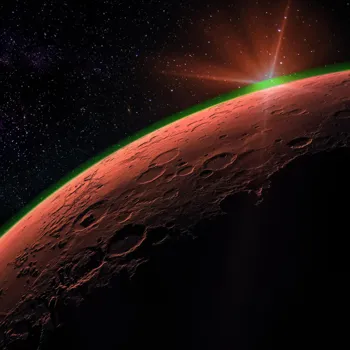
However, Indian scientists are rising to these challenges with creativity and determination. They are developing new instruments, refining theoretical models, and forging international partnerships to overcome these hurdles.
Their dedication and ingenuity are driving progress in this exciting field, paving the way for a deeper understanding of the universe and our place within it.
AI Generated Content. Glance/InMobi shall have no liability for the content













